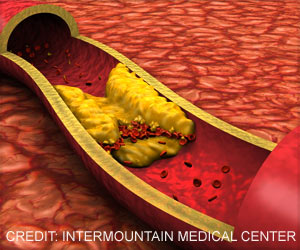Blood type might be a clue to heart disease risk, say researchers.

Those with type B had an 11 percent increased risk, and those with type A had a 5 percent increased risk. About 43 percent of Americans have type O blood.
"While people cannot change their blood type, our findings may help physicians better understand who is at risk for developing heart disease," Lu Qi, M.D., Ph.D., the study's senior author and an assistant professor in the Department of Nutrition at the Harvard School of Public Health in Boston, said.
"It's good to know your blood type the same way you should know your cholesterol or blood pressure numbers," Qi said.
"If you know you're at higher risk, you can reduce the risk by adopting a healthier lifestyle, such as eating right, exercising and not smoking," he said.
The findings are based on an analysis of two large, well-known U.S. studies - 62,073 women from the Nurses' Health Study and 27,428 adults from the Health Professionals Follow-up Study. Participants were between ages 30 and 75, and both groups were followed for 20 years or more.
Advertisement
Researchers noted that the percentages of different blood types seen among the men and women enrolled in the two studies reflected levels seen in the general population.
Advertisement
"Blood type is very complicated, so there could be multiple mechanisms at play," Qi said.
However, there is evidence suggesting that type A is associated with higher levels of low-density lipoprotein cholesterol, the waxy substance that can clog arteries, and type AB is linked to inflammation, which may affect the function of the blood vessels.
Also, a substance that plays a favourable role in blood flow and clotting may be higher in people with type O blood.
The study has been published in Arteriosclerosis, Thrombosis and Vascular Biology.
Source-ANI














